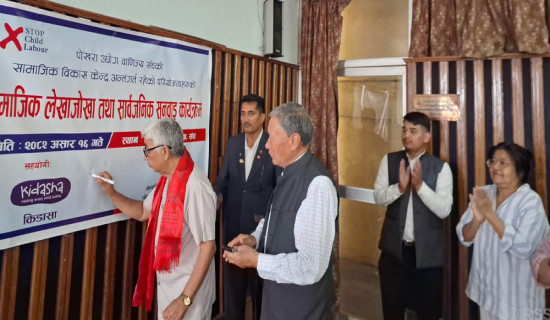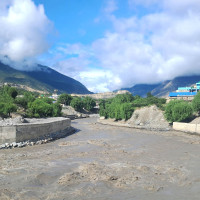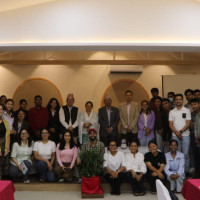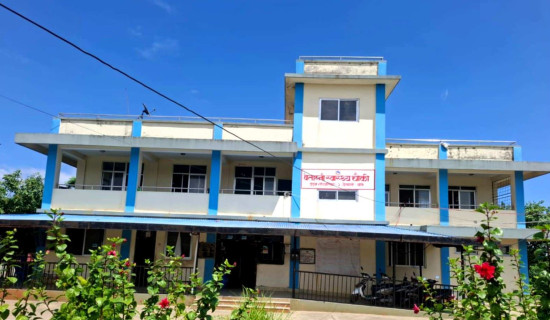- Tuesday, 1 July 2025
Climate change heightens risk of Indian farmer suicides
India, June 10: On a small farm in India's Maharashtra state, Mirabai Khindkar said the only thing her land grew was debt, after crops failed in drought and her husband killed himself.
Farmer suicides have a long history in India, where many are one crop failure away from disaster, but extreme weather caused by climate change is adding fresh pressure. Dwindling yields due to water shortages, floods, rising temperatures and erratic rainfall, coupled with crippling debt, have taken a heavy toll on a sector that employs 45 percent of India's 1.4 billion people. Mirabhai's husband Amol was left with debts to loan sharks worth hundreds of times their farm's annual income, after the three-acre (one-hectare) soybean, millet and cotton plot withered in scorching heat.
He swallowed poison last year. "When he was in the hospital, I prayed to all the gods to save him," said 30-year-old Mirabai, her voice breaking. Amol died a week later, leaving behind Mirabai and three children. Her last conversation with him was about debt.
Their personal tragedy is replicated daily across Marathwada, a region in Maharashtra of 18 million, once known for fertile farmland. Last year, extreme weather events across India affected 3.2 million hectares (7.9 million acres) of cropland -- an area bigger than Belgium -- according to the New Delhi-based Centre for Science and Environment research group. Over 60 percent of that was in Maharashtra.
"Summers are extreme, and even if we do what is necessary, the yield is not enough," said Amol's brother and fellow farmer Balaji Khindkar. "There is not enough water to irrigate the fields. It doesn't rain properly." - 'Increase the risks' - Between 2022 and 2024, 3,090 farmers took their own lives in Marathwada, an average of nearly three a day, according to India's Minister of Agriculture Shivraj Singh Chouhan. Government statistics do not specify what drove the farmers to kill themselves, but analysts point to several likely factors. "Farmer suicides in India are a consequence of the crisis of incomes, investment and productivity that you have in agriculture," said R. Ramakumar, professor of development studies at the Tata Institute of Social Sciences. Farming across many Indian smallholdings is done largely as it has been for centuries, and is highly dependent on the right weather at the correct time.
"What climate change and its vulnerabilities and variabilities have done is to increase the risks in farming," Ramakumar said. This "is leading to crop failures, uncertainties... which is further weakening the economics of cultivation for small and marginal farmers."
The government could support farmers with better insurance schemes to cope with extreme weather events, as well as investments in agricultural research, Ramakumar said. "Agriculture should not be a gamble with the monsoon." - 'Make ends meet' - Faced with uncertain weather, farmers often look to stem falling yields by investing in fertilisers or irrigation systems. But banks can be reluctant to offer credit to such uncertain borrowers. (AFP)
















